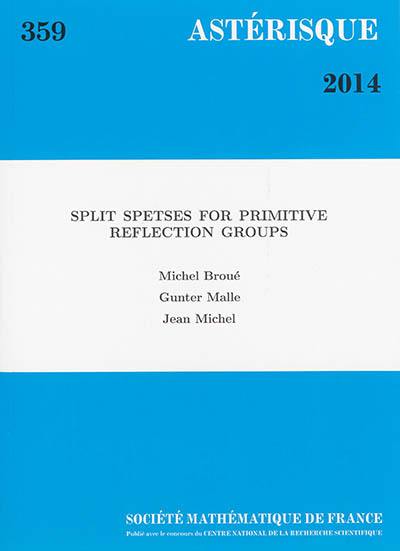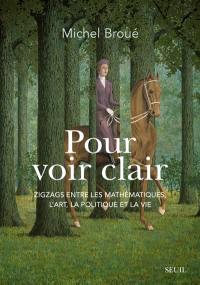
Fiche technique
Format : Broché
Nb de pages : VI-146 pages
Poids : 400 g
Dimensions : 18cm X 24cm
ISBN : 978-2-85629-781-0
EAN : 9782856297810
Split spetses for primitive reflection groups
Quatrième de couverture
Let W be an exceptional spetsial irreducible reflection group acting on a complex vector space V, i.e., a group Gn for n (...) {4, 6, 8, 14, 23, 24, 25, 26, 27, 28, 29, 30, 32, 33, 34, 35, 36, 37} in the Shephard-Todd notation. We describe how to determine some data associated to the corresponding (split) "spets" G = (V, W), given complete knowledge of the same data for all proper subspetses (the method is thus inductive).
The data determined here are the set Uch(G) of "unipotent characters" of G and its repartition into families, as well as the associated set of Frobenius eigenvalues. The determination of the Fourier matrices linking unipotent characters and "unipotent character sheaves" will be given in another paper.
The approach works for all split reflection cosets for primitive irreducible reflection groups. The result is that all the above data exist and are unique (note that the cuspidal unipotent degrees are only determined up to sign).
We keep track of the complete list of axioms used. In order to do that, we explain in detail some general axioms of "spetses", generalizing (and sometimes correcting) our paper "Toward Spetses", Transformation groups 4 (1999), along the way.
Note that to make the induction work, we must consider a class of reflection cosets slightly more general than the split irreducible ones: the reflection cosets with split semi-simple part, i.e., cosets (V, W Phi) such that V = V1 (...) V2 with W (...) GL (V1) and Phi|V1 = Id. We need also to consider some non-exceptional cosets, those associated to imprimitive complex reflection groups which appear as parabolic subgroups of the exceptional ones.






